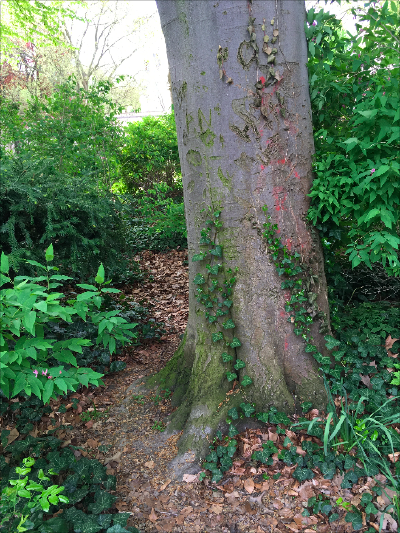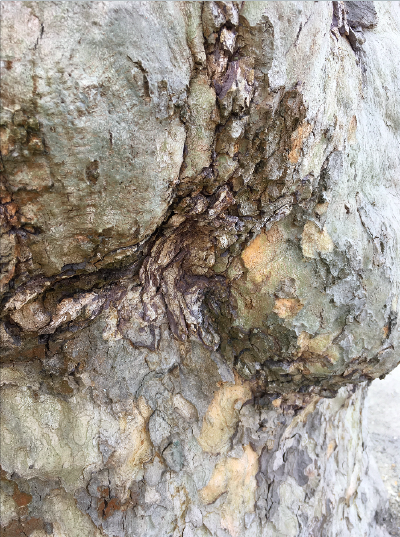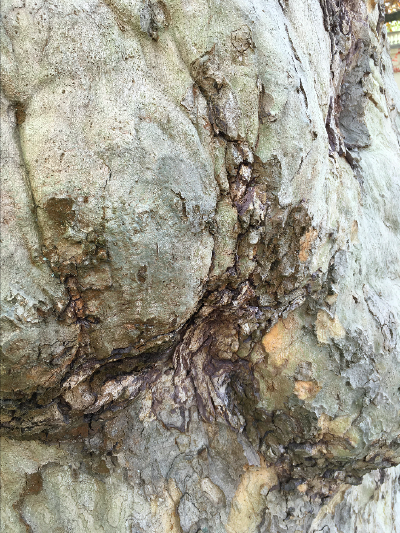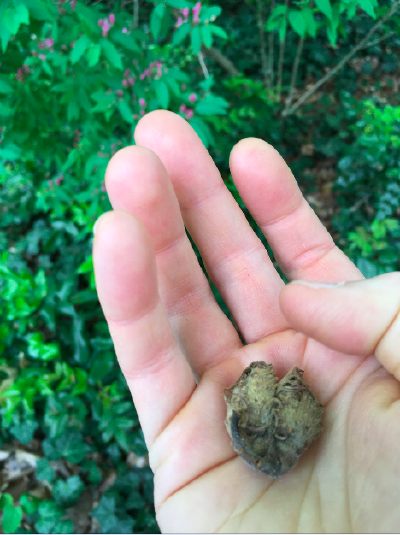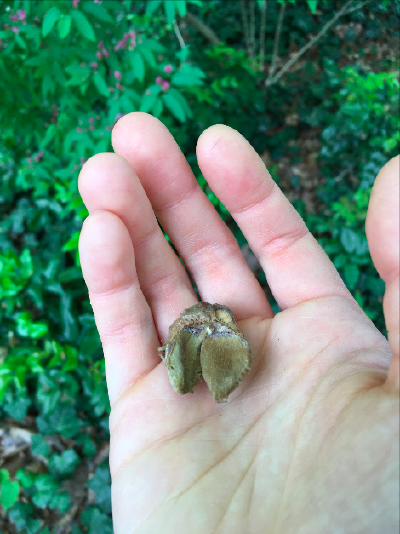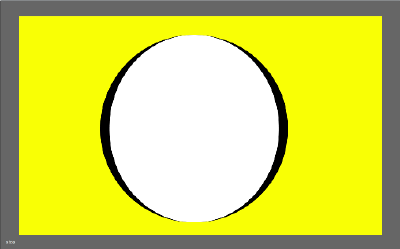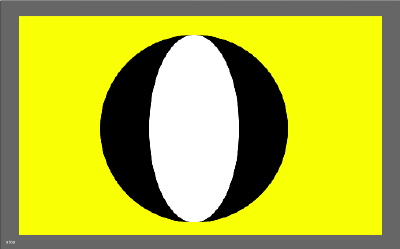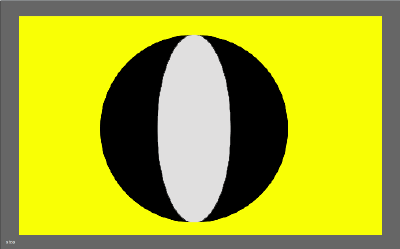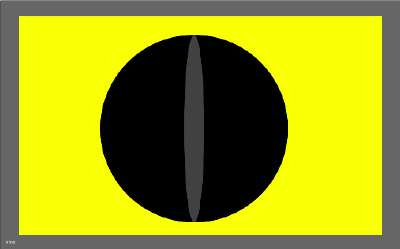No edit summary |
No edit summary |
||
| Line 46: | Line 46: | ||
– . – . – . – . | – . – . – . – . | ||
And later on I think… | And later on I think… | ||
This process of ‚zooming in’ into the details of our environment, it could be really exhausting (and | This process of ‚zooming in’ into the details of our environment, it could be really exhausting (and overwhelmling, and upsetting) if we did this constantly. | ||
So maybe our perception system | So maybe our perception system devellopped on purpose a functionalism that works in a way which ‚saves‘ us from overstimulation: | ||
we look at things, quickly, recognize them [= as being the thing we learnt they are], say „Aha, this it is!“, and move on. | |||
So our usual rather ‚superficial‘ way of perceiving things is also a coping mechanism of our own inner system because if we would really perceive everything in so much detail we would most likely be really really overwhelmed. | So our usual rather ‚superficial‘ way of perceiving things is also a coping mechanism of our own inner system because if we would really perceive everything in so much detail we would most likely be really really overwhelmed. | ||
And I feel reminded of people with forms of autism that are supposed to deal with exactly this topic of ‚over-perception‘ because they can't help but be stimulated by so many things at the same time. | And I feel reminded of people with forms of autism that are supposed to deal with exactly this topic of ‚over-perception‘ because they can't help but be stimulated by so many things at the same time. | ||
And as they say many of those people love to listen to e.g. the roaring of a vacuum cleaner or watch the rotating of a spinning top on the other hand. As these are constant, steady, uniform sounds or movements (with certain patters), it calms them down. | And as they say many of those people love to listen to e.g. the roaring of a vacuum cleaner or watch the rotating of a spinning top on the other hand. As these are constant, steady, uniform sounds or movements (with certain patters), it calms them down. | ||
And I wonder then.... Why is it that listening to a vacuum cleaner for a long time would rather make me nervous than calm me down, and for other people its the other way round? A sound/movement/whatever needs to be so steady and continuously that it secretly slips into | And I wonder then.... Why is it that listening to a vacuum cleaner for a long time would rather make me nervous than calm me down, and for other people its the other way round? A sound/movement/whatever needs to be so steady and continuously that it secretly slips into our subconscious. | ||
Revision as of 12:53, 16 May 2021
When walking in the park with plain perception, it feels to me like the whole park is a stage. And everything that’s happening is reacting to each other like in a stage play. The bird reacts to the jogger who’s passing by, the joggers rhythm is commenting on the rusteling of a tree's leaves, and the tree is reacting with a glittering of its leaves to the bird that is still after the jogger… it’s like a concerted orchestration.
– I draw connections, without intending to do so, and even though these things are most likely not meant to be connected it just happens intuitively and automatically in my head. It feels like everything is interacting with each other, the ‚natural‘ as well as the ‚unnatural‘ parts in this park, They are all ONE organism. and it would be an even more difficult task to NOT draw links between all the elements that are there.
While walking in the park it’s never silent. There is no single moment… when there is nothing to be heard. Moreover I have the feeling, that sounds, voices and other noises are becoming even louder when you are focused and you’re listening closer to them. It becomes almost overwhelming the more you focus; there is no real silence, no second,
Everything’s alive.
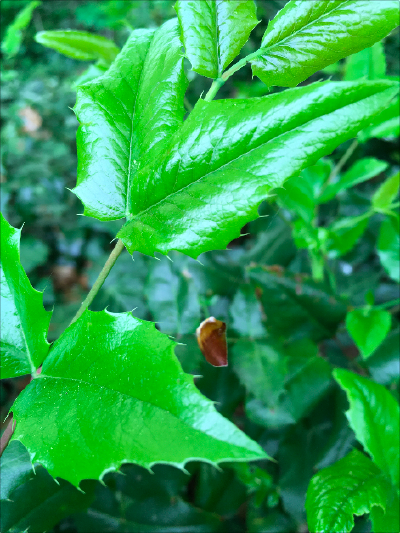 I see little shells of small seed swinging in invisible spiderwebs in the wind
I see little shells of small seed swinging in invisible spiderwebs in the wind
 I see blooming blossoms, that are about to flourish up
I see blooming blossoms, that are about to flourish up
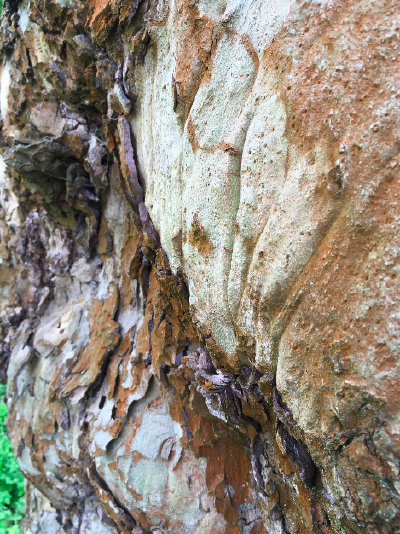 I see traces in the bark of an old tree,
I see traces in the bark of an old tree,
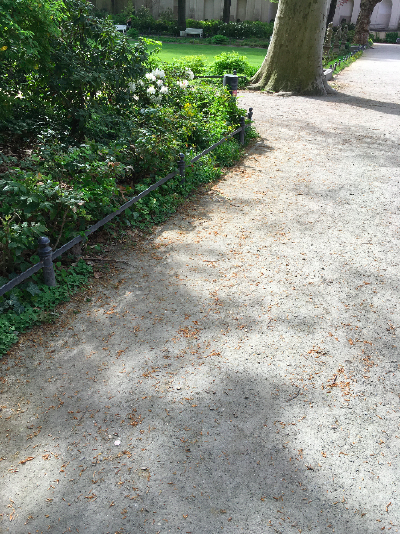 and traces of the sun, carved as shadows on the ground of the walking path.
and traces of the sun, carved as shadows on the ground of the walking path.
When I look closer I see that everything is in a transition state, in a transformation process, and and some of these transformations will leave traces, some will not.
I just realize everything I see and hear it’s just a momentary state, it will never last forever.
I hold the fragile soft beechnut shell in my hand and I don’t want to let it go.
– . – . – . – .
And later on I think… This process of ‚zooming in’ into the details of our environment, it could be really exhausting (and overwhelmling, and upsetting) if we did this constantly.
So maybe our perception system devellopped on purpose a functionalism that works in a way which ‚saves‘ us from overstimulation: we look at things, quickly, recognize them [= as being the thing we learnt they are], say „Aha, this it is!“, and move on. So our usual rather ‚superficial‘ way of perceiving things is also a coping mechanism of our own inner system because if we would really perceive everything in so much detail we would most likely be really really overwhelmed.
And I feel reminded of people with forms of autism that are supposed to deal with exactly this topic of ‚over-perception‘ because they can't help but be stimulated by so many things at the same time.
And as they say many of those people love to listen to e.g. the roaring of a vacuum cleaner or watch the rotating of a spinning top on the other hand. As these are constant, steady, uniform sounds or movements (with certain patters), it calms them down.
And I wonder then.... Why is it that listening to a vacuum cleaner for a long time would rather make me nervous than calm me down, and for other people its the other way round? A sound/movement/whatever needs to be so steady and continuously that it secretly slips into our subconscious.
An experiment with the LED sensor of an Arduino, linked to Processing graphics:
pulsating cat’s eye
When the light is high, the pupil of the cat’s eye widens,
when the light is low, the pupil of the cat’s eye closes.
[I know in reality, the cat's eye works the other way round… ;) ]
--> The color of the pupil also changes, from bright (high value) to dark (low value)
the relevant part of the processing code:
if (data != null) {
int intData = int(data); // ---> !! variable for incoming data
background(255, 255, 0); noStroke (); ellipse (560, 360, 600, 600); /* ---> 1. circle: 'background circle' (just as a referrence for the 2. circle) */
noStroke (); fill (intData, intData, intData); // set fill colour with the value read ellipse (560, 360, intData, 600); /* ---> 2. circle: the 'pupil' (visualizes the incoming data) */ }

